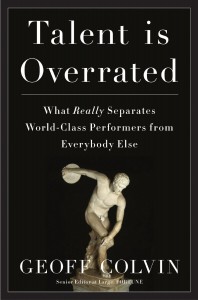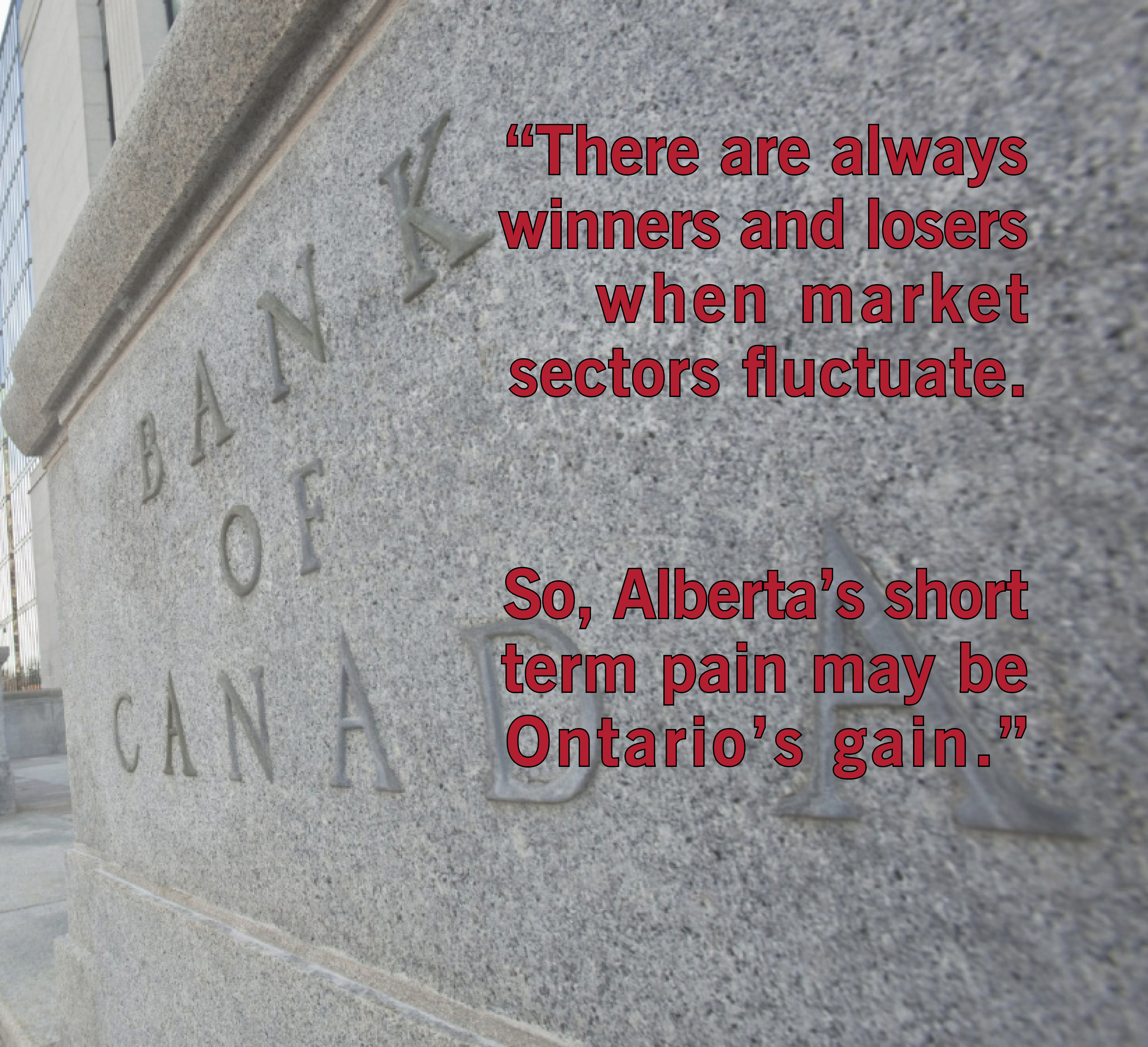There’s been a tsunami of economic data released over the last two weeks; couple that with the new Federal Budget, as well as musings from the Bank of Canada, there’s a lot to chew on. I’m always on the lookout for the “nugget” as it relates to the mortgage industry. Be it data or something said.
The Bank of Canada is still predicting that if there is a price correction it will be a “soft landing”, but with an interesting caveat. According to the Bank of Canada, “The adverse impact of the oil price shock in Alberta, along with robust price growth in Toronto and Vancouver suggests a correction in these markets” – nothing really new here. I think we all know there are two very distinct real estate markets, Toronto and Vancouver on one hand, and the rest of Canada on the other. As for Alberta, once again nothing new. But what I found interesting was that the Bank of Canada suggested that the Toronto and Vancouver marketplace may have to be dealt with separately from a regulatory or pricing standpoint if home values continually rise. Well, this is different. For now it appears to be a warning or simply a heads up to the two respective market places, but it would be naive to think this is just bluster. The Bank of Canada is concerned that a significant correction in home prices in Vancouver and Toronto could spill over to other regions. For all my friends and colleagues in Vancouver, you’re used to this type of chatter. For decades you’ve been hearing, “Here it comes, get ready to create tents cities in Stanley Park because the market is going to crash and you’ll be out of your homes”. I get it, you roll your eyes when you hear this. But for us in Toronto it’s fairly new. Toronto has been this countries piñata for the last decade so leading in any category is fresh. So you’ll have to excuse us here in Toronto if we become skittish by threats. It’s only from of our lack of experience dealing with predictions of the apocalypse.
Helping to ease some of our angst in Toronto, and Ontario, was the most recent federal budget. Yes, Ontario is the pretty girl, and federal Tories want to take us to the prom. The most recent federal budget was skewed to help the manufacturing sector in this country. Trouble in the resource sector? No problem, the federal Tories looked to Ontario and pulled a Joey Tribbiani from Friends and just said “how you doin?” Worry not Alberta. The Tories are not saying “goodbye”. They’re simply saying “we’ll see you again” – like right after the next election.
Until next time,
Cheers.
Read More Add a Comment That’s the title of a book I came across while wandering around an airport a few years ago. The title of the book was such a contradiction of my own personal belief that I was left with no choice but to pick up the book and read the overview inside the book jacket. I’m not sure if the author, Geoff Colvin, came up with the tittle or not. Whoever it was, kudos. It made me pick up the book, and eventually buy it. It’s an interesting and fairly simple read. The book is based on research, and Colvin’s interpretation of the data. His findings and conclusions are based on empirical data, and there is not a single suggestion that to be great at what you do is easy. On the contrary, Colvin concludes that to be great requires painstaking work and dedication.
That’s the title of a book I came across while wandering around an airport a few years ago. The title of the book was such a contradiction of my own personal belief that I was left with no choice but to pick up the book and read the overview inside the book jacket. I’m not sure if the author, Geoff Colvin, came up with the tittle or not. Whoever it was, kudos. It made me pick up the book, and eventually buy it. It’s an interesting and fairly simple read. The book is based on research, and Colvin’s interpretation of the data. His findings and conclusions are based on empirical data, and there is not a single suggestion that to be great at what you do is easy. On the contrary, Colvin concludes that to be great requires painstaking work and dedication.
The reason the book came to mind was because of the Masters Golf Tournament. Golf enthusiasts know that the Masters is being played this weekend, actually, Thursday through Sunday. The Masters is a unique tournament. Its mystique is unparalleled. Augusta National, where the Masters is played, is sacred soil for golfers. Golfers would pay a “stupid” sum of money for the privilege of playing that course, just once in a lifetime. It would be the ultimate bucket list experience. I’ve had the privilege of attending the Master’s on a few occasions. The first time I walked on the grounds I was mesmerized. It was one of those rare moments where you can say the experience was better than what you anticipated it would be. So, what does this have to do with a book entitled Talent Is Overrated? The author dedicated a chapter to Tiger Woods, who just happens to be playing at this year’s Masters golf tournament.
Tiger Woods is one of those rare athletes who transcends a sport. People who don’t even like golf know who Tiger Woods is. He is one of the most recognizable athletes in the world. Many people adore him, and many people dislike him. But there’s no denying that everyone has heard of him, and can recognize Tiger Woods. That’s a result of being a generational athlete, who is responsible for a transformational change of a sport. Some know him more for his personal shortcomings, which I could care less about, but everyone knows him because he was that damn good at his chosen profession. Colvin posed the question, “why was Tiger Woods that good?” Is it a God given talent? Does he possess a golf gene that no others have? How many times have we explained extraordinary results by simply saying, “he/she was born that way”. Colvin debunks that myth, and I think he’s on to something.
SPOILER ALERT – I’m going to share some of his findings so stop reading if you want to pick up the book and be surprised. Tiger Woods was programmed to be a golfer, specifically by his father. Earl Woods, Tigers father, served in the military. He did two tours in Vietnam, the second tour as a member of the United States Army Special Forces. In other words, a bad ass you didn’t want to mess with. He knew all about structure and discipline. He also had a teaching background. His background was the perfect for molding and programming his son to become one of the greatest golfers of all time. Example, when Tiger was an infant, his father would take him into the garage, put him in a high chair, and make him watch his golf swing for hours on end. Tiger’s father loved golf, and he was determined to make his son love the game even more. At four years of age Tiger and his father appeared on the Mike Douglas Show, a well-known TV Talk Show back in the day, to demonstrate his golfing prowess at such an early age. Tiger’s entire life was golf and school. Apparently the focus on education was his mother’s doing. Tiger was programmed to think, eat, drink and practice golf. Thousands and thousands of hours dedicated to hitting a little white ball. The dedication to practice, to sacrifice “normal” child experiences, created a golfing virtuoso. So is Tiger’s mastery of the sport nature or nurture? After reading Talent Is Overrated, I lean more towards nurture.
Everyone knows about Tiger’s personal challenges. Golf fans know that Tiger’s body is breaking down, and his age is becoming a factor. The hundreds of thousands of violent swings, which is the only I can describe Tiger’s golf swing, has to eventually take a toll. The golf world so badly wants Tiger to be Tiger of old. Everyone was surprised to see Tiger embracing other golfers on the practice range at this year’s Masters. Tiger joking around with the media, spending time with his children. Everyone is saying it’s a new Tiger Woods. The Tiger of old had little time for comradery, kibitzing with the press, and family was used as a prop. Can he ever win again with this new found attitude? I think it might be a matter of too little, too late. As the old saying goes, “practice makes perfect”. But perfect has a price.
Until Next Time.
Cheers,
Read More Add a Comment
From Toronto one can visit another world with relative ease. No space flight training required. It’s a simple as gassing up the family chariot and driving west on the 401. After 3 hours and 55 minutes of driving, some 371 km, you should hit Detroit. Within minutes of crossing the border in Windsor, Ontario, you will ask yourself, “where the hell am I?” Sure the navigation display in your car says Detroit, but you’ll be hard pressed to believe it’s not another planet.
The city of Detroit has been in decline, and decay, for a number of years now. The how and why has been debated for many decades. And I can’t speak to the specifics of the root causes of Detroit’s plight, but what I can say with some certainty is that the residents of Detroit would gladly trade their circumstances and problems for ours. I was struck by some statics that I just came across. It’s been well publicized that the average home price in Toronto jut hit $1 million recently. In Detroit, some sixty-two thousand homes will go into foreclosure for unpaid taxes this year. The homes will be auctioned off for an estimated $500. That’s right, for the cost of two grande lattes at $tarbucks, you can buy a house in Detroit.  Sure you might have some issues to deal with if you end up with the winning bid. Like the current owners still living in the house, but they stopped paying taxes because the city can no longer provide basic services. There’s a chance they might be gun owners, and now that they’re not paying property taxes, they have extra cash to buy more ammo. Let’s not forget about squatters (more…)
Sure you might have some issues to deal with if you end up with the winning bid. Like the current owners still living in the house, but they stopped paying taxes because the city can no longer provide basic services. There’s a chance they might be gun owners, and now that they’re not paying property taxes, they have extra cash to buy more ammo. Let’s not forget about squatters (more…)
That’s not exactly what we have come to expect from the Bank of Canada. For years it’s been none and done. Historically when the Bank of Canada makes an adjustment to the overnight lending rate, up or down, it’s not normally a one shot proposition. So why the change? Well, for now there was no need to lower the overnight lending rate. Financial and economic conditions have improved since the last rate cut. Still somewhat tenuous but not as dire as some were suggesting. Here’s how the Bank of Canada rationalized not making a change to the overnight lending rate, “The oil price shock has had a modest early impact on aggregate demand, and a larger effect on income. The Bank continues to expect that most of the negative impact from lower oil process will appear in the first half of 2015, although it may be even more front-loaded than projected in January. Nevertheless, data for 2014 as whole suggest the anticipated rotation into stronger growth in non-energy exports and investments”.
 One doesn’t require expertise in breaking ciphers to decode the Bank of Canada’s position. Simply stated, there’s still concern about Alberta, relative to the price of oil, but the fallout and pain may be contained. Also, there are always winners and losers when markets sectors fluctuate. So Alberta’s short term pain may be Ontario’s gain. Yes, it appears that the “have not” province may be in a position now to tuck away their tin cup and pencils – not for a moment do I think politicians at every level in Ontario will cease being the country’s most organized panhandlers, but the justification for handouts may become more difficult. (more…)
One doesn’t require expertise in breaking ciphers to decode the Bank of Canada’s position. Simply stated, there’s still concern about Alberta, relative to the price of oil, but the fallout and pain may be contained. Also, there are always winners and losers when markets sectors fluctuate. So Alberta’s short term pain may be Ontario’s gain. Yes, it appears that the “have not” province may be in a position now to tuck away their tin cup and pencils – not for a moment do I think politicians at every level in Ontario will cease being the country’s most organized panhandlers, but the justification for handouts may become more difficult. (more…)
One of the unfortunate by-products of the “information” age is that content is required, every minute of the day. Be it 24 hour news stations, sports stations or online publications etc. There’s no time to think things through. In-depth research and analysis takes times, and nobody seems to have it today. We live in a 24 hour news cycle, and the competition is fierce. The more salacious or provocative a story is, the greater the chance that eyeballs will be directed to it. Case and point, Alberta. Our friends and colleagues in that province must feel like they’re under siege. It’s a constant bombardment of the “sky is falling” narrative. This is not an “it’s not fair” sentiment an eight year old says that when you make them go to bed by 9:30 pm. The shame is that there does not appear to be much balance in the news with respect to the price of oil, and the impact it will have in Alberta. There are contrary opinions in this regard, but you have to look for it.
I came across an article which suggests that the price for a barrel of oil has hit bottom. This is not a lone opinion, and one individual who is suggesting this has a wee bit of knowledge and credibility in this regard. (more…)
Read More Add a Comment